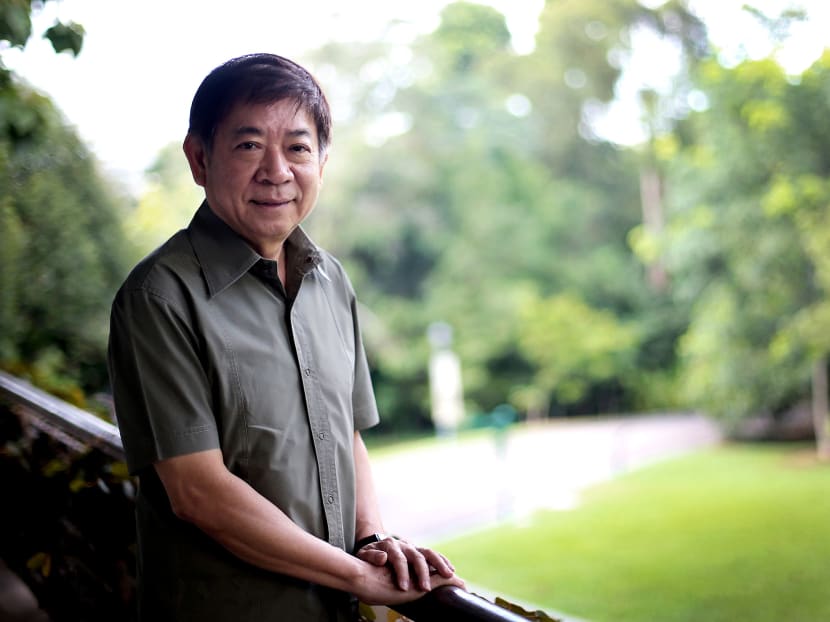Housing situation ‘much happier’ but more needs to be done: Khaw
SINGAPORE — While the Government has done much to address the public dissatisfaction with housing that came to the fore in the 2011 General Election, National Development Minister Khaw Boon Wan told TODAY in an interview there remains more to be done, such as addressing the needs of singles and people who suddenly find themselves in financial hardship.
SINGAPORE — While the Government has done much to address the public dissatisfaction with housing that came to the fore in the 2011 General Election, National Development Minister Khaw Boon Wan told TODAY in an interview there remains more to be done, such as addressing the needs of singles and people who suddenly find themselves in financial hardship.
For the masses, their rising expectations — which Mr Khaw stressed ought to be welcomed as society progresses — will have to continue to be met.
“We are in a much happier situation today. But there remain some problems to be resolved,” he said in the interview, which was conducted last Thursday (Aug 13) at the Singapore Botanic Gardens.
With the authorities reviewing the income ceiling for Build-to-Order flats and executive condominiums — the second time it is doing so since 2011 — Mr Khaw reiterated that the move is to keep pace with wage increase over the years. Nevertheless, he suggested, the Government would be quite happy to see the proportion of people living in Housing and Development Board (HDB) flats go up — in contrast to the thinking some years back.
“Is 80 per cent the right level? Should we be higher? Should it be less? Years ago, there were some thoughts that maybe 80 per cent is probably too high and more people may want to be in private housing,” Mr Khaw revealed. “And probably that was the reason too that the construction programme of HDB then went on a slow path. But I think the experience of the last few years suggest to us that people are satisfied with the quality of public housing, and the standards are something that Singaporeans are proud of.”
When he announced the review of the income ceilings in June, Mr Khaw said he would personally like to “give every Singaporean couple a chance” to live in an HDB flat even though they may have greater means and do not need Government-subsidised housing.
Policymakers are still mulling over the considerations, he said, but he noted that increasing the proportion to between “80 (and) 85 per cent” was possible. Still, “even maintaining 80 per cent would require some adjustments, because of the wage increases in the last four years”, he said.
Mr Khaw said that, overall, the housing market is now “much more stable”. He noted that Members of Parliament have observed improvements in public sentiments towards housing issues. People are now complaining that they are unable to sell their houses at the price they want, he said.
While it is not possible to please both buyers and sellers at the same time, the current situation is “a fairer balance” between the two groups, Mr Khaw said.
In the past five years, more than 100,000 new flats — enough to fill two Ang Mo Kio towns — have been launched. Housing grants were also increased substantially, benefitting a wide range of income groups.
Mr Khaw noted that apart from meeting the demands of newly-weds, the increase in supply of new flats also allowed policymakers to meet another “important objective” of helping married children live near their parents. Adding that this was a policy outcome that he was “particularly happy with”, Mr Khaw said: “There was a period when most new flats were built in Punggol. In the past five years, while we continued to expand Punggol, we also built Build-to-Order (BTO) flats elsewhere in Yishun, Sembawang, Choa Chu Kang etcetera.”
The “ground-breaking” move of allowing singles to buy two-room flats directly from the HDB was another major policy change that Mr Khaw said he was proud of. Apart from singles, there is another group of Singaporeans that Mr Khaw wants to focus on: Those who have bought HDB flats before but sold their units and spent their proceeds. For these cases, the victims are often the children who would have to follow their parents “from one rental unit to another”. “We are thinking hard about (whether there is) a way we can try to help such families. But they must be prepared to say, ‘I’ll now make a strong effort and I want to restart my life.’ It’s not an easy problem ... housing is just one aspect of a larger social problem,” Mr Khaw said, adding that Minister of State (National Development and Defence) Maliki Osman has started a pilot project helping such cases in his Siglap division.
During the 2011 GE, various Opposition parties zoomed in on public unhappiness over the high housing prices and limited supply of flats. Part of the public ire was also directed at the Government’s asset-enhancement policy, which some people felt had contributed to the runaway housing prices.
Mr Khaw said: “Having an appreciating asset is certainly better than not owning anything. Fifty years of continuous progress and compulsory saving through the Central Provident Fund and home ownership have put Singaporean families in an enviable position as compared to their counterparts in almost every other country. This is a legacy which we should appreciate and treasure.”
Nevertheless, Mr Khaw pointed out that property prices are intrinsically tied to wages, which in turn are affected by economic growth. “After decades of double-digit growth rates, our economy has entered a mature phase, so we have to be realistic about the potential for exciting rise in property value as in the past,” he said. Still, so long as the region remains peaceful and the Republic retain its competitiveness, the economy will continue to grow — albeit moderately — and property prices would increase at a similar pace.
However, Singaporeans would have to adjust their expectations when looking for a new house to make sure it is within their means, keeping in mind that their wages would not go up as rapidly as in the past. He said: “That mental adjustment is something that Singaporeans may not be used to it yet.”
Stressing that economic growth is necessary for “all the nice things in life”, he said: “That’s why sometimes we are quite amazed by critics of the Government who say why are we always focused on GDP (gross domestic product) ... But at the same time, we have to recognise that once the economy reaches maturity, growth rates would not be the same as in the past.”
And to critics who feel that housing is unaffordable here, Mr Khaw has a straightforward response: “The bottomline is this: 80, 90 per cent of Singaporeans own their homes. If they are not affordable, then how do you achieve such an outcome?” he said. Nevertheless, he said, there are always people at the margins, and that is why income ceilings have to be dynamic and regularly adjusted.
Given how he has turned around the situation since he volunteered to helm the housing porfolio after the 2011 GE, would he be interested in the transport portfolio vacated by outgoing Cabinet Minister Lui Tuck Yew and which some have described as a poisoned chalice?
Mr Khaw gave a diplomatic answer: “We are the Government and we cover all aspects. Every portfolio is challenging and equally satisfying, at the moment I’m just focusing on housing and there is unfinished business which I want to finish.”









